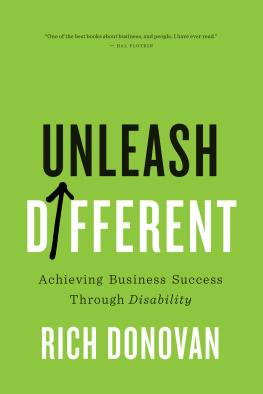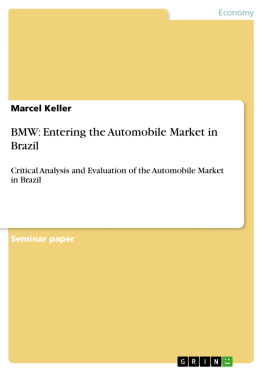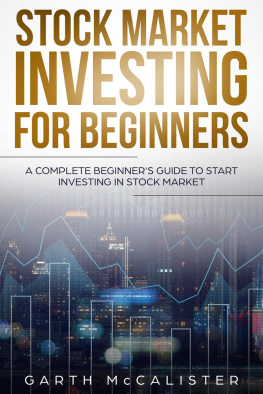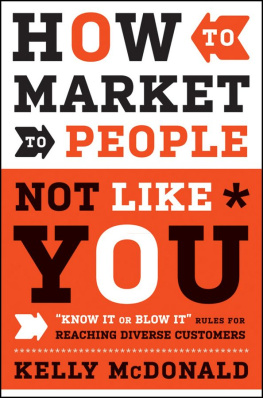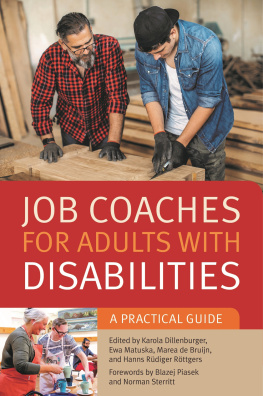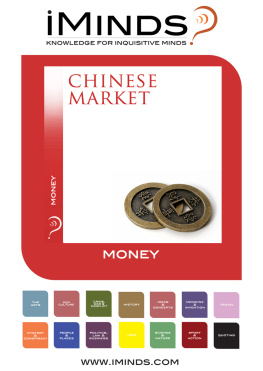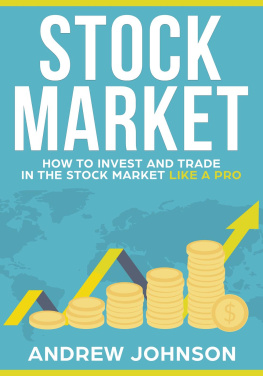This ebook has been built to adhere to Accessible EPUB Publication requirements recommended by the International Digital Publishing Forum outlined in the EPUB Accessibility 1.0 specification and conforms to WCAG 2.0 accessibility requirements, level AA.
If you find this ebook does not meet your accessibility needs, please contact us at info@ecwpress.com
Contents
Prologue
Just the Beginning
Part One
Growing Up Different
Chapter One
The Short Bus
Chapter Two
Blowing Up Barriers
Chapter Three
Hockey Helmets and Tennis Balls
Chapter Four
Bad to the Bone (for a Geek)
Chapter Five
Wall Street Calls, University Begins
Part Two
Unleashing Different
Chapter Six
Running for a Seat in Parliament
Chapter Seven
My Introduction to Public Finance
Chapter Eight
Columbia Calling
Chapter Nine
Empire State of Mind
Chapter Ten
The Recruiting Game
Chapter Eleven
My Golden Key
Chapter Twelve
Fly Me to the Moon
Chapter Thirteen
Mother Merrill
Chapter Fourteen
9/11 and a New Path Forward
Chapter Fifteen
A Big Day in the Life of a Trader
Chapter Sixteen
The Physics of Markets
Chapter Seventeen
Rebranding Disability
Chapter Eighteen
New Horizon
Chapter Nineteen
Close Encounters: Finding Love
Chapter Twenty
Rites of Passage: From Fianc to Fatherhood
Part Three
Getting a Return on Different
Chapter Twenty-One
A Market the Size of China
Chapter Twenty-Two
Getting Real about the Economics of Disability
Chapter Twenty-Three
Pepsi, Please
Chapter Twenty-Four
Engineering a New Stock Index
Chapter Twenty-Five
Going Public
Chapter Twenty-Six
The Charity Fallacy
Chapter Twenty-Seven
A Billion Bells
To the hundreds of millions of people with disabilities around the world: this is a story of one man owning his identity and acting on that identity. It is my aspiration that you rise as powerful consumers to embrace your identity and demand better experiences. To the global institutions seeking to attract people with disabilities as customers and employees: start by listening directly to your customer, and then act on what you hear. Do these things, and youve changed the world forever.
Prologue
Just the Beginning
I had prepared for this moment for weeks, months, years. In some ways, I had been preparing all my life. Yet somehow it hadnt quite hit home that it was really going to happenat first, probably because it was so far off, and then because it was just so colossal. But now it was here. I was at the New York Stock Exchange (NYSE), about to ring the opening bell before three hundred million observers. Back when I was a trader, that bell had marked my starting line each day. On this day, it would mark the start of trading of a new stock market indexone that I had created. The Return on Disability Index would be the worlds first to recognize disability as a driver of shareholder value. It would measure the performance of companies that provided products, services, and careers to people with disabilities. By ringing the bell, I was about to launch 1.3 billion people into the global economy. No pressure.
Even in that busy room, my thoughts went back to a night in the bar with my crew at Columbia Business School, when I first voiced my ideas. You know, guys, Im getting all these requests and calls from disability groups, and I did the math. This market looks big. Nobodys really looking at it. My friend Dustin looked at me and said, You know, Rich, youre a successful guy. Youve done well, and theres this big body of people out there who need leadership. Isnt it kind of incumbent on you to step up? I mean, this is something that you can do. This is something that youre uniquely qualified to do.
Most people dont get to see the client lobby of the NYSE. Its a gorgeous room, full of artifacts: ancient ticker tapes, memorabilia, and screens playing videos featuring the operations of listed companies. Anyone who steps inside will quickly understand, if they didnt already, that this is not just a place where billions of dollars are exchanged each day. It is a place with history and meaning.
The NYSE staff greeted our party that had been invited for the opening bell ceremonies and led us to a room where they gave us name badges and a medallion to mark the day. We were then ushered into a boardroom that seemed to come straight out of a movie set. An impossibly long table extended into the distance. At the end was a kind of altar where you could imagine the leaders of the Stock Exchange in, say, 1894, discussing the fates of companies and building the institution that today is the worlds biggest arbiter of capital.
We had a brief reception to celebrate the occasion. The NYSE set a strict cap on attendees, so we only invited our biggest supportersthose who had been instrumental in getting our concept off the ground and who embodied what we were trying to do. We had the head of the UN agency on disability. My Luu, the former global innovation, solutions, and policy director at IBM, was there. We had representatives from Pepsi; Mark Wafer, a disability champion formerly at Tim Hortons; and many others.
Our partners at Barclays asked me to give a speech. This was bound to be interesting, because most of the people in the roomNYSE officials, Barclays colleagues, other business peoplehad never heard me speak before. I think the Barclays team especially expected a rah-rah speech on building communitythe typical charitable approach. At that point, ours was a boardroom relationship. They didnt know my speaking style and had no clue what I was going to say.
I was genuinely overwhelmed by my surroundings and the idea of launching this new financial instrument that would recognize people with disabilities as a market. I ended up giving probably the hardest-core business speech of my life. I dont generally write speechesI speak from the head and the hip. Toward the end, I remember saying, This is not the end of the journey, this is just the beginning. This is where we focus on the economic potential of 1.3 billion people in the world who have disabilities. We put the power of financial capital behind these lives of phenomenal potential. Thats what this institution was created to do, and now were going to do it with disability. I ended the speech with a call to action: Weve got some work to do, folks. Lets get to work. I dont usually speak that wayI generally default to facts and the logic that flows from those facts. But in that moment, something compelled me to make that call to action. In the moment, it dawned on me that we were about to trade disability as a market for the first time. I owed it to the thousands of people with disabilities whom I had met to unleash my own passion. I owned my own identity as a person with a disability.
It was time to head to the trading floor. As is typical for me when Im in an older building, I took the back way, the way the public never gets to seewhich I kind of enjoy. I walked past offices and conference rooms and closed doors, and I could imagine some of the worlds great inventors walking through those halls. Once again, it dawned on me that we were breaking new ground by leveraging a centuries-old institution in a new way. I smiled and thought,

